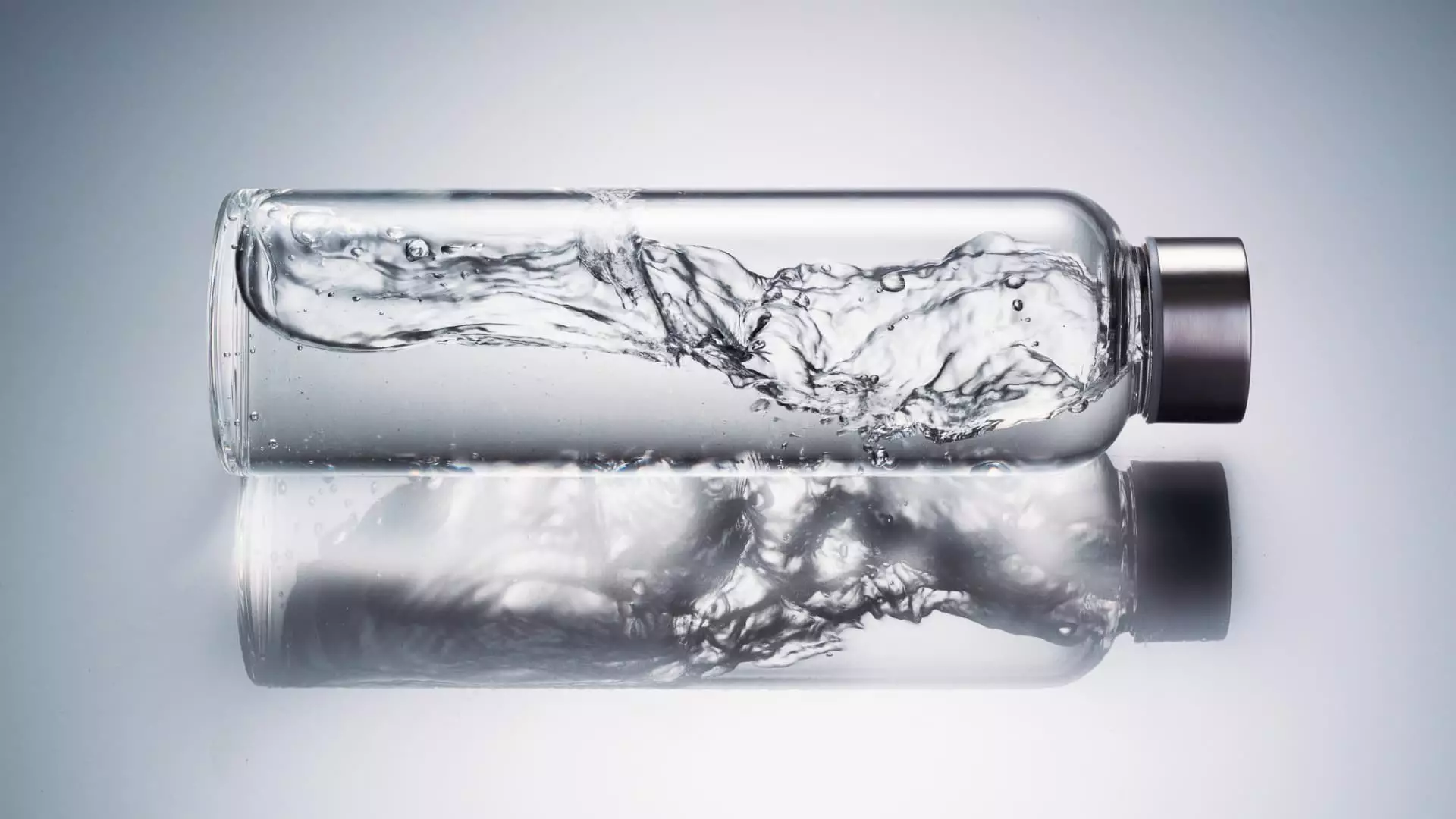In the world of high-end dining, the choice of beverage often reflects both status and the establishment’s commitment to sustainability. A prime example of this trend is Singapore’s illustrious three-Michelin-starred Restaurant Zen, where fine dining takes on an environmentally friendly twist. Rather than offering bottled waters from renowned brands like Evian or San Pellegrino, the establishment opts exclusively for water produced by the Swedish company Nordaq. For a dinner priced at nearly $500 per person, one might expect a more extravagant water selection, but this choice highlights a significant shift in the hospitality industry towards sustainability and local sourcing.
Executive Chef Martin Öfner emphasizes that at Zen, every dish and beverage incorporates Nordaq water. This includes stocks, juices—everything crafted to enhance the dining experience while maintaining a sustainable ethos. The water, purified and bottled on-site, aligns with a growing number of Michelin-starred restaurants that abandon traditional bottled waters. Johanna Mattsson, CEO of Nordaq, asserts that her company’s mission is to significantly cut down the reliance on single-use plastic water bottles, not only in the restaurant context but across the hospitality sector globally.
The reason behind this shift is compelling. Much mineral water served in upscale establishments travels vast distances, which raises environmental concerns. Mattsson candidly notes, “Transportation of water over water doesn’t make sense,” prompting a reevaluation of how restaurants source their water. The trend aims to eliminate unnecessary carbon footprints associated with transporting bottled water, especially when perfectly good alternatives are available locally.
The operational methodology of Nordaq is meticulous. Their bottles, devoid of plastic labeling for easy washing and reuse, are crafted for practicality. Designed with wide-mouthed openings to fit standard dishwashers, the bottles are ensured to be clean and safe for continuous use. Each refill is handled with care, with dates stamped and caps secured for consumer confidence. This redirection from typical bottled water not only combats plastic waste but also offers restaurants a chance to gain fiscal advantage by reducing costs associated with high-end bottled waters.
Hotels like the Mandarin Oriental Singapore have embraced this sustainable approach, showcasing Nordaq’s system across various facets of their operations—including guest rooms, restaurants, and wellness facilities. With a bottling capacity of 500 bottles per hour, the hotel effectively meets its demand while showcasing a commitment to sustainability. The concept reflects a broader movement within the industry wherein establishments are willing to go the extra mile in environmental stewardship to enhance their brand identity.
Nordaq is merely one player in the burgeoning market for sustainable bottled water. Companies like Castalie and Purezza offer alternatives that also focus on localized production to minimize resource transportation. In India, ITC Hotels has launched its own brand called SunyaAqua, which emphasizes “zero-mile” water sourced from nearby facilities, entirely eliminating the need for transport. Such initiatives reflect a paradigm shift within the hospitality sector, wherein sustainability and guest experience go hand in hand.
Additionally, Be WTR, another significant contender, aligns its operations close to consumer base locations to reduce transportation emissions. With ambitions to operate facilities within hotels, the brand emphasizes operational efficiencies to curtail plastic use while benefitting their clients financially. According to Be WTR’s founder Mike Hecker, successful setups have drastically cut down the reliance on imported bottles, showcasing the dual benefit of environmental consciousness and improved profit margins for hospitality businesses.
The financial implications of using locally sourced water solutions are increasingly appealing to establishments concerned with both sustainability and their bottom line. For instance, Nordaq’s production costs range from 11 to 21 cents per bottle, allowing hotels to price these amenities competitively against traditional high-end bottled waters, but with the added benefit of sustainability. Many restaurants and hotels are discovering that by serving local, purified water, they can enhance their brand’s appeal while simultaneously addressing consumer demand for eco-friendly practices.
As the hospitality industry embraces evolving sustainability standards, the focus on local water solutions not only showcases a commitment to reducing ecological footprints but presents an opportunity to redefine luxury. The narrative has shifted from merely indulgent choices to mindful, environmentally responsible dining, thereby altering the fabric of upscale experiences for the contemporary consumer. This shift underscores a collective movement toward conscientious consumption—an ethos that is now becoming synonymous with luxury dining.


Leave a Reply